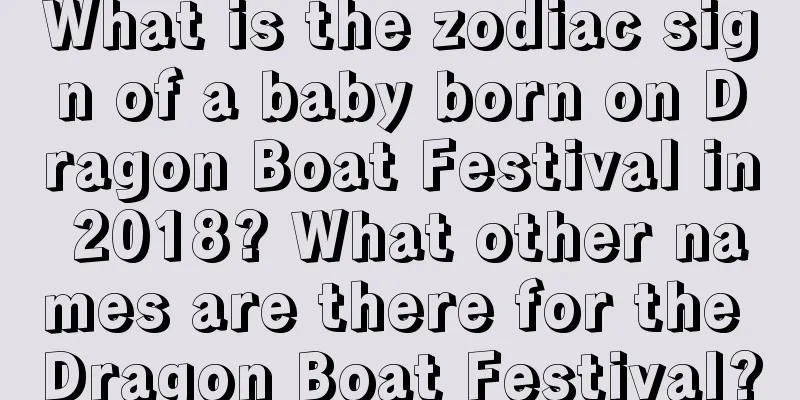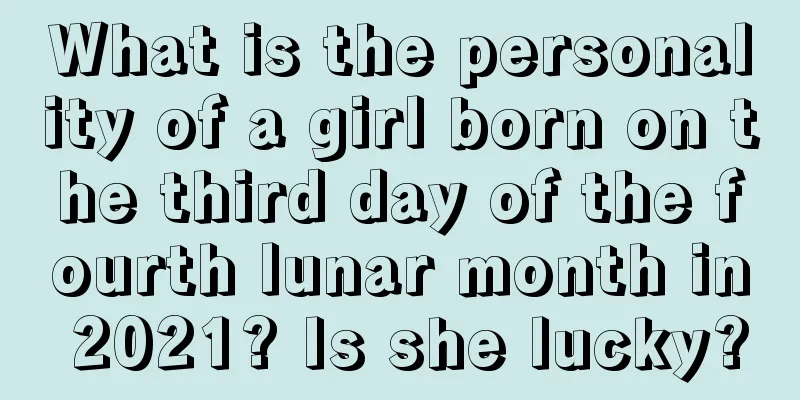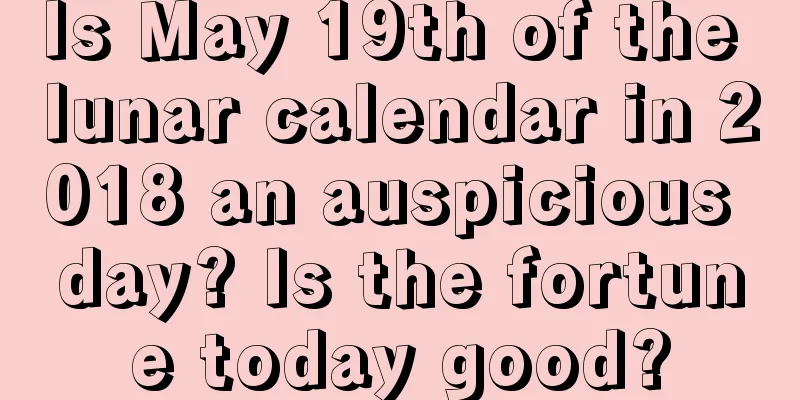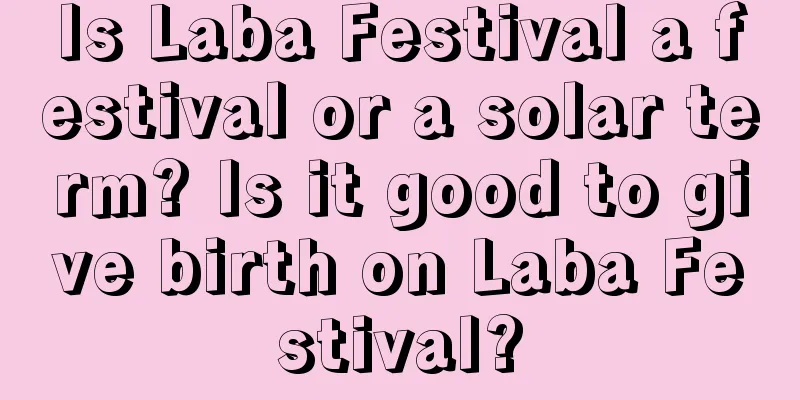What is the zodiac sign of a baby born on Dragon Boat Festival in 2018? What other names are there for the Dragon Boat Festival?

The fifth month of the lunar calendar has arrived, midsummer has come, and we have also ushered in the grand Dragon Boat Festival. The annual Dragon Boat Festival is an important part of Chinese traditional festivals that cannot be ignored. On this special day, let us browse the content about the 2018 Dragon Boat Festival in the Dragon Boat Festival special topic of Fortune Teller Network.When is the Dragon Boat Festival in 2018?This year's Dragon Boat Festival is on the 28th day of the third lunar month in 2018 (lunar calendar), which corresponds to the 13th day of the fifth lunar month in 2018, which is a Sunday in the Gregorian calendar.The Dragon Boat Festival falls on the fifth day of the fifth month of the lunar calendar every year. According to the "Jingchu Sui Shi Ji", because people climb high places in midsummer when the sun is in the sky, and May is midsummer, its first noon is the day for climbing high places in the sky, so the fifth day of May is also called the "Dragon Boat Festival." The Dragon Boat Festival is a traditional cultural festival popular in China and other countries in the Chinese cultural circle. What is the zodiac sign of a baby born on Dragon Boat Festival in 2018?This year's Dragon Boat Festival falls on the fifth day of the fifth lunar month, which is June 18th in the Gregorian calendar.Gemini’s birth dates every year are between May 21st and June 21st, so the baby born on the Dragon Boat Festival this year will be a Gemini. Gemini is the third sign of the zodiac, representing changeability and communication. Geminis love change. The exuberant spring spirit is reflected in the main personality traits of Gemini people, which are changeable thinking, unrestrainedness, and endless curiosity about the all-encompassing things in the outside world. It can be said that this is an alert, active and restless constellation. In the minds of ancient Chinese people, the fifth day of the fifth lunar month every year is the most unlucky day in an evil month and the most poisonous day of the year. In the old days, there was a saying that "if a child is born on May 5th, a boy will harm his father and a girl will harm her mother." This means that children born on this day may bring bad luck to their parents, so they may be abandoned or have their birthdates changed. The most typical ones include Mengchangjun, one of the "Four Gentlemen of the Warring States Period", Wang Zhen'e, a general of the Eastern Jin Dynasty, and Zhao Ji, Emperor Huizong of Song Dynasty. Therefore, children born on the Dragon Boat Festival are generally regarded as a symbol of bad luck, but this is not entirely accurate. Every year, people born on the Dragon Boat Festival have different birth dates. Although they are all born on the Dragon Boat Festival, their horoscopes are vastly different. Combined with their luck, some people can become the second Song Huizong, while others are just ordinary. To sum up, the fate of people born on the Dragon Boat Festival is not the same, but it is definitely not as hopeless as rumored in ancient times. From the perspective of numerology, people born on the fifth day of May, the Dragon Boat Festival, do not have such a bad fate. Children born on the fifth day of the fifth lunar month are gentle and kind. They are powerful, impressive, and have a strong character. They are resourceful, powerful, and righteous. They are promoted by noble people. However, they may ruin their own affairs by speaking without thinking. Also, because they are fickle, they tend to start things with great success but end up with a whimper. They may sit and watch good opportunities disappear. It is better to get married late than early, otherwise the couple may conflict halfway through. It is a life of wealth and glory in old age. What other names are there for the Dragon Boat Festival?According to statistics, there are more than 20 names for the Dragon Boat Festival, such as Duanwu Festival, Duanyang Festival, Double Fifth Festival, Double Fifth Festival, Dangwu Festival, Tianzhong Festival, Summer Festival, May Festival, Chang Festival, Pu Festival, Dragon Boat Festival, Bathing Orchid Festival, Qu Yuan Day, Noon Day Festival, Daughter's Festival, Dila Festival, Poets Festival, Dragon Day, Noon Day, Lantern Festival, Five Eggs Festival, etc.♢ Dragon Boat Festival The word "Duan" means "beginning", so "Duanwu" means "the fifth day of the first lunar month". According to the calendar, May is the "Wu" month, so "Duanwu" gradually evolved into "Duanwu". The Records of the Sui Shi of Yanjing records: "The fifth day of the first lunar month is the fifth day of the fifth month, which is probably the transliteration of the word "Duan"." ♢ According to the "Jingchu Sui Shi Ji" records, the Dragon Boat Festival is a festival in which people climb high places in midsummer when the sun is in the sky. May is midsummer and the first noon of the month is a good day for climbing high places in the sky, so the fifth day of May is called the "Dragon Boat Festival". ♢ Double Fifth Festival "Wu" belongs to the twelve Earthly Branches. The fifth month of the lunar calendar is the Wu month. Wu and Wu have the same pronunciations, and five and five are repeated, so the Dragon Boat Festival is also known as the "Double Fifth Festival" or "Double Fifth Festival". In some places it is also called the "May Festival". ♢ Dragon Boat Festival Dragon boat racing is an important activity of the Dragon Boat Festival. It is very popular in southern China, especially in Guangdong, where it is called dragon boat racing. It was originally a sacrificial activity of the ancient Yue people to worship the water god or dragon god, and its origin may have begun in the late primitive society. Dragon boat racing has a long history and has been around for more than 2,000 years. It is a traditional Chinese folk water sports and entertainment event. It is mostly held during festive occasions and is a collective paddling competition for many people. After it spread abroad, it was loved by people from all over the world and became an international competition. ♢In some rural areas of Shanghai, near the northern shore of Hangzhou Bay, such as Fengxian and Nanhui, it is customary to call the "Duanwu Festival" "Dangwuxun". ♢The name of Tianzhong Festival comes from the Yin-Yang numerology. Tian Rucheng of the Ming Dynasty wrote in "Records of the West Lake Tour, Volume 20, Joys of the Xichao Period": "The Dragon Boat Festival is called Tianzhong Festival because the sun reaches its highest point in the sky at noon, especially at noon, so it is called Tianzhong Festival." Japan regards May 5th as "Men's Day", which may be derived from the Tenchu Festival, because it is believed that only men can inherit the energy that connects heaven and earth. ♢ The Dragon Boat Festival is in midsummer, a season when skin diseases are prevalent. It was a custom in ancient times for people to bathe in orchid soup to remove dirt. The "Da Dai Li" of the Han Dynasty said: "Bathe in orchid soup at noon." ♢ Zongzi Untying Festival When the ancients ate Zongzi on the Dragon Boat Festival, there was a game in which each person compared the length of the Zongzi leaves they untied, and the oldest one won, so it is also called the "Zongzi Untying Festival". ♢ Daughter's Day Ming Shenbang "Wan Shu Miscellaneous Notes" said: "Daughter's Day in May, people tie the Dragon Boat Festival rope, wear moxa leaves and five poisonous spirit talismans. Wan custom is to dress up little girls from the first to the fifth day of May, and make them look their best. Married girls also return to their parents' home, so it is called the Daughter's Day." ♢ The etiquette in southern Hunan follows the ancient custom of hanging mugwort on the door and taking a bath with mugwort to repel mosquitoes on the fifth day of the fifth month when summer comes. People believe that baptism can drive away malaria and allow them to safely survive the summer mosquito-infested season. ♢ Acorus calamus festival The Dragon Boat Festival is not only an ancient totem sacrificial festival, but also a festival for "eliminating diseases and preventing epidemics." The ancients believed that "Double Fifth" was a taboo day, as the five poisonous creatures would appear at this time. Therefore, most customs of the Dragon Boat Festival were to drive away evil spirits and avoid poison, such as hanging calamus and mugwort on the door, so the Dragon Boat Festival is also called the "Calamus Festival." |
>>: Why do we eat rice dumplings and race dragon boats during the Dragon Boat Festival?
Recommend
Check the lunar calendar for the third day of the sixth lunar month in 2018. Is it a good day?
The sixth month of the lunar calendar is approach...
What are the taboos on the 18th day of the first lunar month?
Although the 18th day of the first lunar month is ...
Is it a good idea to get engaged during the Frost Descent season in 2018? When is the auspicious time?
Frost Descent occurs around October 23rd of the Gr...
When is New Year's Day 2018? What should we pay attention to during New Year’s Day?
New Year's Day is an extremely special day for...
Is it appropriate to sign a contract on September 23rd of the lunar calendar in 2017?
In the workplace, you will always encounter situat...
Is it a good idea to move and set up the bed on the Double Ninth Festival on the ninth day of the ninth lunar month in 2019? Is the Double Ninth Festival the Ghost Festival?
Introduction: The Double Ninth Festival is one of ...
What is the lunar calendar for New Year’s Day 2022? Can I move house on New Year’s Day?
New Year's Day is the first day of 2022. I wan...
The Feng Shui story of the wealthy Li Ka-shing and the Feng Shui stories of Wu Dongjin and Wang Yongqing
Faith will bring you wealth, so what kind of fait...
Can I get married on September 17th of the lunar calendar in 2017? Is it a good day for engagement?
The ninth month of the lunar calendar marks the b...
When is the Lantern Festival in 2022? What is the origin of the Lantern Festival and what does it mean?
The Lantern Festival falls on the fifteenth day of...
Is the seventh day of the tenth lunar month in 2017 a good day to burn incense and pray for blessings?
Introduction: In daily life, everyone burns incens...
What should not be done on the Dragon Boat Festival on the fifth day of the fifth lunar month in 2019? Why do we eat rice dumplings on the Dragon Boat Festival?
Introduction: The Dragon Boat Festival is an ancie...
How will we take the Mid-Autumn Festival holiday in 2021? When is the Mid-Autumn Festival holiday?
As one of China's traditional festivals, there...
Analysis of the 28th day of October in the lunar calendar in 2021. Is it a good day to move house?
The pros and cons of moving at different times are...
Is it possible to offer sacrifices on the fourth day of the second lunar month in 2018? What are the procedures for ancestor worship?
China is a country with a long history, so there a...









